Government Shutdown’s Impact Likely To Expand
The longer the shutdown goes on, the wider its impact is likely to become.
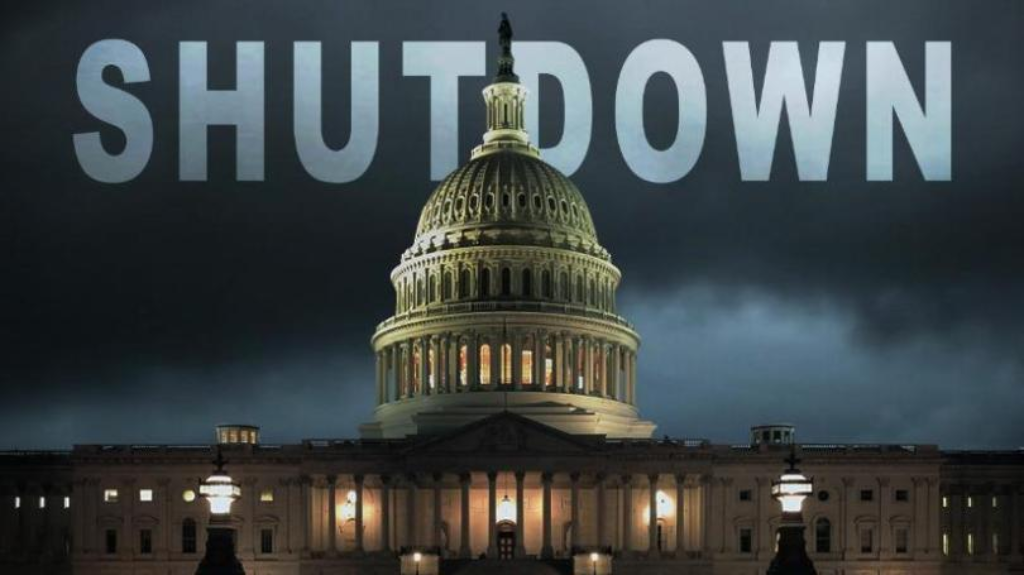
So far, the impact of the government shutdown that began on December 21st has been somewhat limited. If you call a handful of government agencies you’ll get a message that they can’t take your call due to the shutdown, for example, and roughly 800,000 Federal workers have either been furloughed or told to continue coming to work even though they have no promise that they’ll get paid when the next Federal paycheck is due on January 11th. Additionally, the fact that the majority of the shutdown has taken place during the holidays has meant that it has gone largely unnoticed for most Americans. The shutdown has also been mitigated by the fact that some agencies and departments have been able to continue operations due to what I suppose can be called creative bookkeeping and the fact that they’ve been able to rely on other funds to continue operations. Federal Courts, for example, have been able to operate at normal capacity so far because of the funds that come from criminal and civil fines imposed by the courts. Other agencies have been able to operate at least at partial capacity in much the same manner.
As Politico notes, though, that’s about to come to an end and it means the impact of the shutdown is about to be felt more extremely:
Nine federal departments haven’t received a cent in federal funding in more than a week.
They’ve limped along on leftover money, coasted through the quiet days of the holidays and paid staff with checks already prepped before the lapse.
But all that’s about to end.
Many of the departments and agencies hit by the partial shutdown, which began Dec. 22, have reached a breaking point in their ability to go on with minimal disruption. They are running out of carryover cash and time to prep checks for the midmonth pay period. In a very visible sign of the growing impact of the shutdown showdown, 19 Smithsonian museums and the National Zoo will close to the public on Wednesday, their temporary funds exhausted.
While paychecks for federal employees went out Friday after a pay period ended on Dec. 22, workers are left wondering whether they will get their next check on Jan. 11. The pay period for that next check ends on Jan. 5. Pay processing varies from agency to agency.
The Office of Management and Budget said in recent guidance that no federal employee — including those still working without pay — can be compensated for the pay period spanning Dec. 23 to Jan. 5 until the shutdown ends.
Bracing for a prolonged period without appropriations for much of the federal government, D.C. Mayor Muriel Bowser has directed several District offices to stay open longer to receive the hundreds of unemployment claims rolling in.
Amid that uncertainty, Trump issued an executive order on Friday freezing salaries for civilian employees in 2019 — halting a 2.1 percent raise that was scheduled to take effect in January. Congress, however, could include a pay raise in a spending package to break the budget impasse.
The Office of Personnel Management has provided sample letters federal employees can give to landlords, mortgage companies and creditors to explain late payments.
The departments of Agriculture, Justice, Treasury, Commerce, Interior, State, Transportation, Homeland Security, and Housing and Urban Development as well as agencies like the Environmental Protection Agency, the Food and Drug Administration and the Internal Revenue Service are all hit by the partial shutdown.
According to Politico, the fact that the shutdown is lasting this long will soon have immediate impacts on the Department of Agriculture, the Coast Guard, the ability of the Department of Homeland Security to conduct ongoing investigations, the operation of the Smithsonian museums in Washington, which will be required to close to the public on Wednesday, the Environmental Protection Agency, as well as various operations through the Justice Department, although things such as the Mueller investigation are not likely to be impacted. If the shutdown lasts past January 11th, then the Federal Courts will likely be impacted, meaning at the very least that the processing of civil cases will be delayed or slowed significantly. The shutdown is also having an impact at the Internal Revenue Service even as Americans start focusing on their 2018 tax returns. Presently, 7 out of 8 IRS employees are furloughed, and the shutdown likely means that processing or returns and other matters is likely to be slowed significantly.
The question, of course, is whether the widening of the impact of the shutdown will increase the pressure on Washington to resolve this matter sooner rather than later. As I noted late yesterday, the Democrats have come up with a plan that would provide full funding for those parts of the government not directly impacted by the debate over the border wall but that plan appears to be dead on arrival both with the President and the Republican-controlled Senate. This means that, after the voting makes it official later this week, we’ll still be stuck in a shutdown. So far, the blame for that shutdown has fallen on the President and the Republicans on Capitol Hill and it seems likely that this will continue to be the case going forward. At the same time, though, Democrats taking control of the House would clearly like to begin their tenure with something other than a prolonged shutdown battle. Given that, the setting seems right for a compromise but the grounds for that compromise remain unclear.


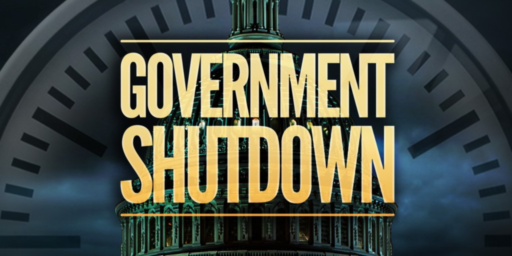
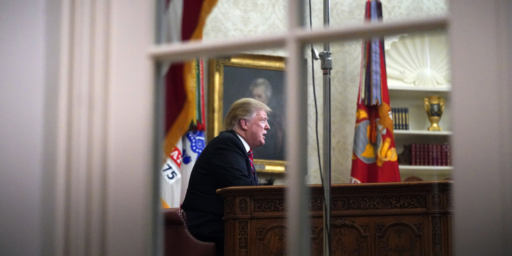
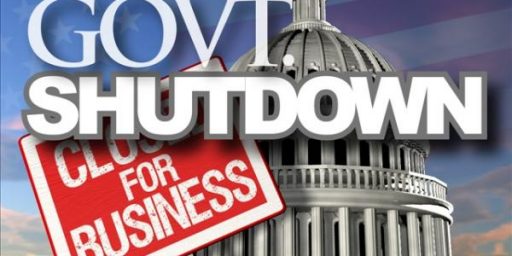
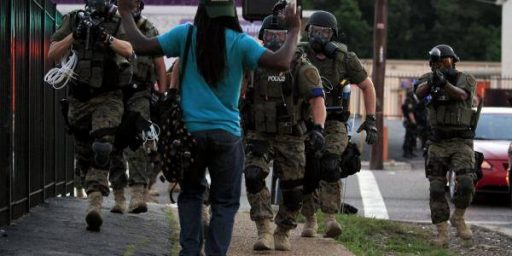
Well, it’s impacted me.
I am lined up for a new consultative role, and as part of the prep there is the usual steps that need to be taken for a new job.
They required a copy of my SS Card. which I have had since the 1970’s. And as you can imagine it is as tattered and well worn as you would expect. And they are not accepting that copy.
But to get another, I need to go to a local SS office… closed. Thanks Pres Trump.
@Resistance Ron:
Ron, welcome to OTB. Folks here like facts. So: Let’s consider some:
1) The GOP controlled the Presidency, House and Senate. Some would say that they control the Supreme court as well. That is all three branches of Govt.
2) Pelosi did not control the House. Schumer did not control the Senate. Both were held by the GOP.
3) In two years the GOP controlled congress did not find a way to approve Trumps folly.
4) Due to GOP ineptitude, would you fault someone (Pelosi, not “leading democrats” – plural) for taking a vacation? During a holiday? When The GOP basically shut down congress?
Nice try Ron. Back to the fever swamps with you.
@Liberal Capitalist:
“Resistance Ron” is Jenos/Whizbang coming back here after he’s been banned. He knows OTBers aren’t impressed by his fact-free bullsh!t, but he just can’t help himself. Dude has no friends, so the interactions he has here are the closest he gets to normal human interactions.
@Resistance Ron: I bet you also think a “no-deal” Brexit will be WONDERFUL for the U.K. economy.
Tell me, how many messages from Nigerian princes offering funds have you responded to last week? I bet it’s a lot….